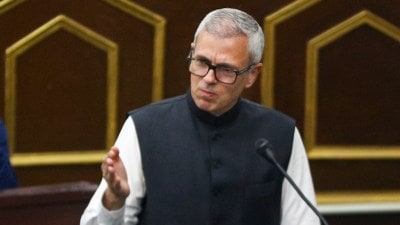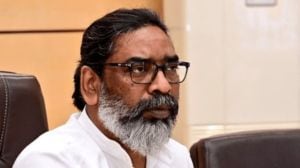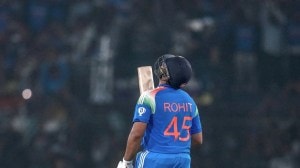Mumbai attack key to Pak Army comeback plot
New Delhi is fast coming to the conclusion that the terror attacks in Mumbai had the sanction of the highest levels in the Pakistan Army...

New Delhi is fast coming to the conclusion that the terror attacks in Mumbai had the sanction of the highest levels in the Pakistan Army given the way events are unfolding one month on.
While Indian suspicion was always along these lines, sources said, the ease with which the Pak Army has moved from one plan to the other shows a clear objective of ratcheting up the “security threat” on its borders with India to achieve a combination of aims.
According to the Indian assessment, the first objective was to tell the West that it cannot take for granted the Pak Army’s presence in NWFP and FATA. Second, to reinstate the institutional credibility of the military in Pakistan after the exit of Pervez Musharraf. And, third, to clearly reassert the military’s supremacy over the civilian government on security issues.
On all three counts, the Pakistan Army has made steady, tangible progress since the Mumbai attacks.
And has got the political establishment to promptly fall in line — witness the quick climbdown by Nawaz Sharif on Ajmal Kasab’s Pak origin and yesterday’s Pakistan National Assembly Resolution.
It said that the country was with its armed forces to defend “Pakistan’s security interests at all costs,” a sharp contrast to its October resolution after the Islamabad Marriott bombing in which it referred to “dictatorial regimes (that) pursued policies aimed at perpetuating their own power at the cost of national interest”. And that Pak territory “shall not be used for any kind of attacks on other countries.”
This time, however, through an orchestrated propaganda campaign, the focus in Pakistan has shifted from the role of Pak-based terrorist groups in the Mumbai attack to one of defending Pakistan that has obfuscated the facts and merits of India’s case.
Not just that, the situation has allowed Pak diplomacy to reinvigorate itself and frame the issue in Indo-Pak terms. Any defining success on this front would be a blow to the gains India has made on the foreign policy front in the past few years.
It’s clear, therefore, to New Delhi that the Mumbai attack had larger strategic objectives that have become more explicit now than they were even in the first week of December. And, hence, would require a strategic response at every level. From an Indian standpoint, sources said, it’s also certain that for all the risk it involves, the Pakistan Army sees gains out of provoking India. The first attempt was the attack on Indian Embassy, Kabul, where again clear evidence surfaced of orders being given from Pak territory. A few months later, the daring Mumbai attack with a definite intent to provoke India did not draw a hasty response from New Delhi. However, sources said, this time the Pak Army seemed to have worked out the propaganda strategy as a back-up and that is now on display.
What’s more important for India, sources said, is that its restraint is no assurance against further attacks. On the contrary, officials said, the possibility remains high as long as India is not sufficiently provoked.
It’s learnt that to take its diplomatic offensive against Pakistan to the “next level,” India is waiting for the election process in Jammu and Kashmir — where counting is scheduled for December 28 — to get over. This is crucial given the success story of a record turnout in the Valley and an admission by separatists that they misread the political signals.
With the US Administration in a state of transition, India does not expect any major shifts until Barack Obama takes over on January 20. However, sources said, India still hopes that the Bush Administration moves on the results from the FBI investigations and follows the trail leading into Pakistan. Meanwhile, the US has asked Pakistan to tone down the war rhetoric and signs of it were visible in Pakistan PM Yousuf Raza Gilani’s address on Benazir Bhutto’s first death anniversary but this was only complicated by yesterday’s Pakistan National Assembly Resolution.



- 01
- 02
- 03
- 04
- 05




























